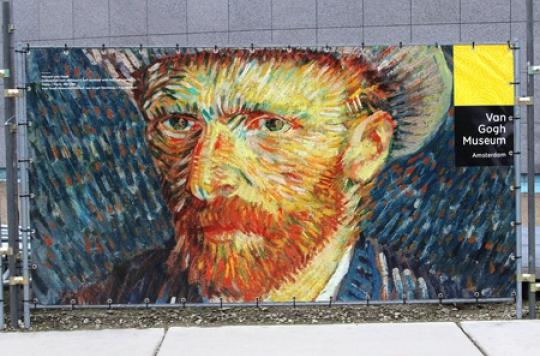While in France more than a million people are affected by bipolar disorder, this mental illness remains unrecognized. It takes 10 years to make the diagnosis.

Vincent Van Gogh, Ernest Hemingway, Sir Winston Churchill… All these personalities would have suffered from bipolar disorder, formerly called manic-depressive illness. This mental pathology is characterized by an alternation of depressive phases and phases of so-called manic excitement, those which would be precisely responsible for the creative genius of the Dutch painter and the American writer.
Today in France, it is estimated that 1 to 2% of the population are affected by this psychiatric disease, or nearly 1.3 million people. “But we know that all these people are probably not diagnosed and followed up”, emphasizes to Why actor Prof. Marion Leboyer, head of the psychiatry and addictology center of the Mondor Hospital Group and director of the FondaMental foundation, one of the partners of this second World Day for Bipolar Disorders which is being held this Wednesday, March 30.
10 years of diagnostic wandering
The first symptoms usually start between the ages of 15 and 25. But very – too – often they are diagnosed as depressed, with schizophrenia or other psychiatric disorders. It can take 10 years between the first depressive episode, or manic, and the diagnosis and then the implementation of a specific treatment. “This diagnostic wandering is a considerable loss of opportunity since the earlier we treat, the more effective the treatments”, regrets the specialist. It is indeed during the first 5 years of the disease that the chances of remission are greatest.

The reasons for this diagnostic delay are numerous. The pathology is complex and its polymorphic symptoms can be confused with many psychiatric illnesses. In addition, the phase of extreme elation can be experienced as pleasurable by the patient and does not necessarily lead to a consultation. It is the relapse into the depressive phase, felt as violent by the patients, which can push them to see a specialist. For Marion Leboyer, the lack of information and knowledge of the general public is also one of the reasons.
Serious repercussions
The consequences of this delay in diagnosis are severe. “Mania is a serious pathological episode. During these manic episodes, their energy is increased tenfold, they think and act faster than usual, they no longer need to sleep. They then feel more powerful than others, which can lead them into dangerous situations, ”explains Prof. Marion Leboyer. While people with bipolar disorder are at high risk of suicide – nearly one in six untreated commits suicide – late recognition of their disease increases this risk. The socio-economic repercussions are also dire. Many lose their jobs or have financial difficulties. Family breakdowns are also frequent.
Marion Leboyer, Director of the FondaMental Foundation: “ Mania is truly a pathological episode characterized by euphoria and hyperactivity. They feel completely uninhibited and can put themselves in dangerous situations for themselves and for others. “
Other consequences: disorders associated with this disease such as insomnia or anxiety disorders will not be detected. Likewise, metabolic disorders such as diabetes, obesity or hypertension, also associated with bipolar disorders, are not sufficiently identified.
Support research in psychiatry
To fight against this diagnostic wandering and improve the quality of life of patients, Expert Centers specializing in pathologies and based on multidisciplinary teams have opened up throughout France. A creation notably promoted by the FondaMentale Foundation. There are now around thirty in France and Monaco, including 9 centers dedicated to bipolar disorders.
At the same time, research teams are trying to identify new biomarkers to help doctors make an early diagnosis. “They can be markers of brain imaging, electroencephalogram (EEG), inflammatory or genetic markers. But for the time being, they are still the preserve of research. “And the latter will remain so for a long time to come if investments are still so rare. “France is one of the countries in Europe which invests the least in research in psychiatry since only 2% of biomedical research budgets are devoted to this field”, deplores Professor Marion Leboyer. This lack of funding particularly affects bipolar disorders even though this psychiatric pathology is considered the 6e cause of disability in the world. This World Bipolar Disorders Day is also an opportunity to call on the general public to take action on this chronic and disabling pathology.
.
















